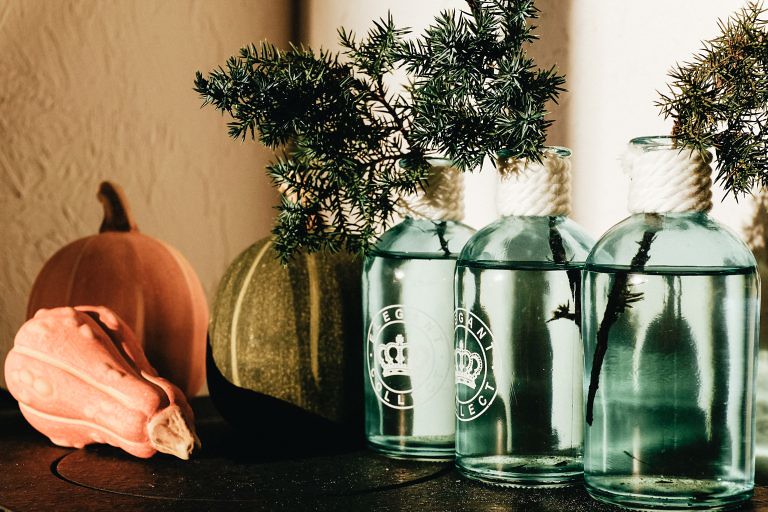
I was sad those first several months at school. I called home crying a lot. I visited home — and left crying — a lot. It is a testament to my parents that they never said, “Maybe college isn’t for you,” because if they had, I know I would have quit. I know it was hard for them to witness how miserable I was, and now, being a parent myself, I am all too familiar with the desire to fix a problem for my children.
Somehow — thanks to a kind and hilarious therapist, a handful of equally kind and hilarious friends, and a combination of perseverance, faith, and exhaustion — I stuck it out. And while it took me a tad longer, I eventually graduated from college.
The college memory I keep returning to during these days of the pandemic happened on a spring morning moments after I woke up. I tossed off my covers, climbed down the ladder of my loft, looked around my dorm room, and made the most basic and also joyful observation about myself: I am not all sad.
It is this thought that I’m turning over as we enter our fourth season of pandemic living: I am sad, but I am not all sad.
Actually, it was a poem about the importance of the pumpkin vine that stirred this memory. “The Hustling Pumpkin Vine” by Uncle Mose is catchy and rhythmic. Reciting it, it’s hard not to tap your feet along and smile at its upbeat message: “The weeds may grow around it but the pumpkin vine don’t stop, / it shows it’s there for business an’ it climbs right on top / An’ if it strikes a big stone fence or a ditch that may be wide, / It jes’ lines out ‘n strings the pumpkins on the other side.”
Here is a poem that could be considered trite, but I think it’s about looking at the natural world in order to look within ourselves. We consider what we’re made of so we can better take our place in the world. I think that means having the willingness to attend to sadness and look out for joy. I think it is this grappling that can be the catalyst for change and growth.
These days there are lots of reasons to go (and stay) outside. Take a walk through a pumpkin patch. Sit outdoors at a cafe. Bring your sadness for the world with you, but also look out for joy: in the vines, in the (darn) tenacity of the yellow jackets, in the lullaby of the crickets, bidding farewell to the summer’s warmth, and calling us deeper into autumn, where we must attend carefully — and joyfully — to the dark.
Try It
Take a walk this week and find a lesson about nature that can help you this season. Write a poem that points out the sadness and the joy you are holding onto.
Photo by barnimages.com Creative Commons, via Flickr. Post by Callie Feyen.
Browse more poetry prompts

– Celena Roldan
- Poetry Prompt: Courage to Follow - July 24, 2023
- Poetry Prompt: Being a Pilgrim and a Martha Stewart Homemaker - July 10, 2023
- Poetry Prompt: Monarch Butterfly’s Wildflower - June 19, 2023
Rick Maxson says
“Bring your sadness for the world with you, but also look out for joy: in the vines, in the (darn) tenacity of the yellow jackets, in the lullaby of the crickets, bidding farewell to the summer’s warmth, and calling us deeper into autumn, where we must attend carefully — and joyfully — to the dark.”
Beautiful, Callie!
Callie Feyen says
Thank you, Rick. I appreciate that.
Sandra Heska King says
What he said!
Rick Maxson says
Here in the Stone
So we learn from walking,
that change is a part of life.
The grasses along the curb,
Sycamore trees ragged as a rip
in the sky, push off winter’s
curse like a fairy tale;
the small flowers
with their band of foliole,
make their way through
the grey remains of autumn,
and the still moist green blades
push from some soft pith
like veins in the fissured stone.
The clouds gather
before the rain falls,
the river rises.
Someone tells you how
this happens,
but when a rainbow
arches before you,
always in the distance,
you forget in the pursuit.
I pondered it like a puzzle
when I was a child
until the mystery faded,
its colors shattered
and fell to earth.
I wonder how dying fits
after the struggle
to make living matter.
This morning I don’t care why.
The garden is shining
after the rain.
I don’t know why
I’m telling you this,
I write to follow where it goes.
Callie Feyen says
“I write to follow where it goes.” Me, too. Thanks for sharing this poem. I love it.
Megan Willome says
Butterfly Season
The butterflies are back
(no, not the monarchs
that’s next week)
This week it’s the snout-nosed butterfly
the symbol of life
the color of dirt
August drought
then September rain
means they swarm
this warm afternoon
thronging north
two blocks hence
to Hackberry Street
not properly migrating
just messing around
In my car I dodge their kamikaze
swerve toward my windshield
Others cling to a healthy branch
pulling it down like dead leaves
playing possum with my heart.
I walk until I find a hackberry
tree, defoliated by butterflies.
The tree will recover
Just not this year
Callie Feyen says
“not properly migrating/just messing around” – Oh, how I love that phrase, Megan.